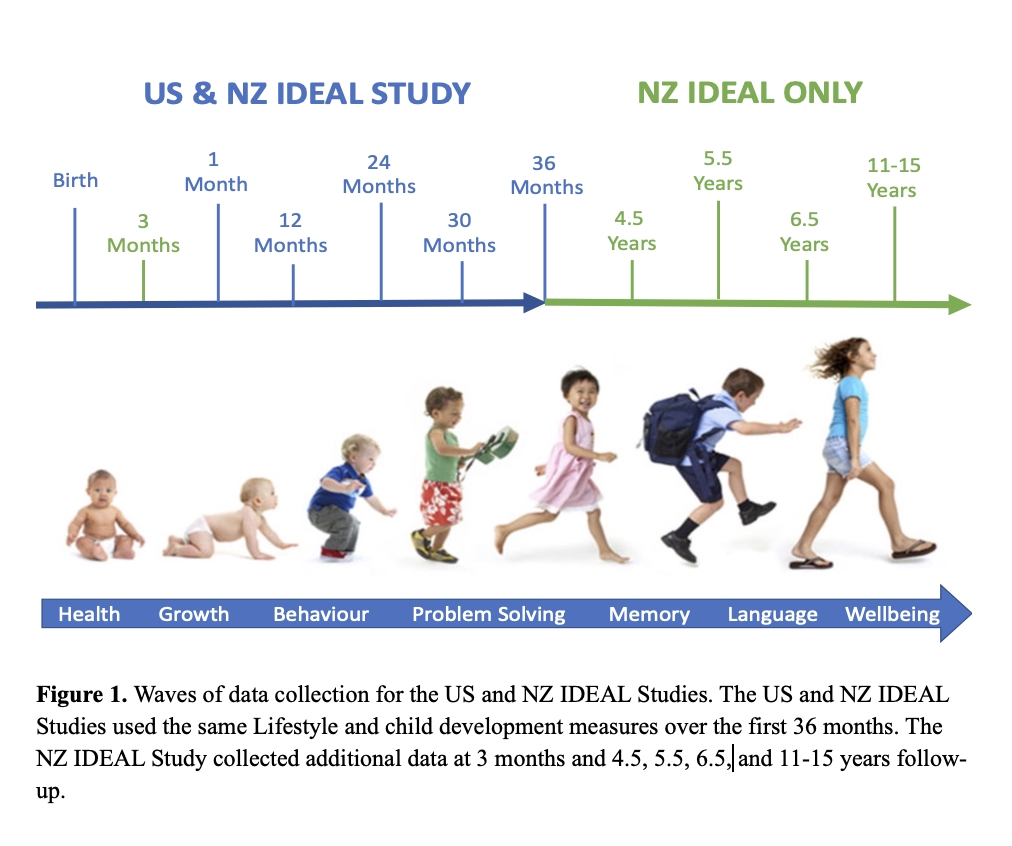Methamphetamine (MA) use in women of childbearing age has now surpassed the use of cocaine and other stimulants globally. The prevalence of MA use during pregnancy has escalated, with studies indicating that up to 5% of all births in some regions are affected by prenatal exposure. The implications of this trend are profound, as exposure affects both the mother’s health and well-being and the child’s health and development. Women who continue to use MA in pregnancy have higher rates of pregnancy loss, pre-eclampsia, cesarean delivery, placental abruption, preterm delivery, and a higher risk for cardiovascular disease. Maternal MA use during pregnancy is also associated with other drug use, mental illness, a history of physical or sexual abuse, poverty, and domestic violence. The United States (US) and New Zealand (NZ) Infant Development, Environment, And Lifestyle (IDEAL) prospective, longitudinal studies were designed to determine the health, behaviour, and developmental outcomes of prenatal exposure to MA in the context of the child’s environments. Women exposed to MA in NZ were enrolled during pregnancy (n = 107) and matched with women who reported no MA use (n = 110) and their infant had a meconium sample negative for MA. Women were matched for education, ethnicity, and their child’s birth weight. Figure 1 shows the longitudinal waves of data collection for both studies. The first 36 months of both studies used the same measures. The NZ study continued to collect data throughout middle childhood and early adolescence. At each wave of data collection measures of the child’s environment were obtained, including maternal substance use, mental health, and living conditions from the Maternal Lifestyle Questionnaire. Child measures included growth, behaviour, cognitive and motor development, and health and well-being. This talk will provide an overview of the developmental outcomes in the context of the environments of children enrolled in the NZ IDEAL Study. The gaps in our knowledge and how we can mitigate the effects of MA exposure on both the mother and her child will be discussed.
Placental and Fetal Brain Interfaces (Royal Veterinary College, London, UK) (2025) Proc Physiol Soc 63, SA10
Research Symposium: Methamphetamine in pregnancy: A health crisis!
Trecia Wouldes1
1The University of Auckland New Zealand
View other abstracts by:
Where applicable, experiments conform with Society ethical requirements.

